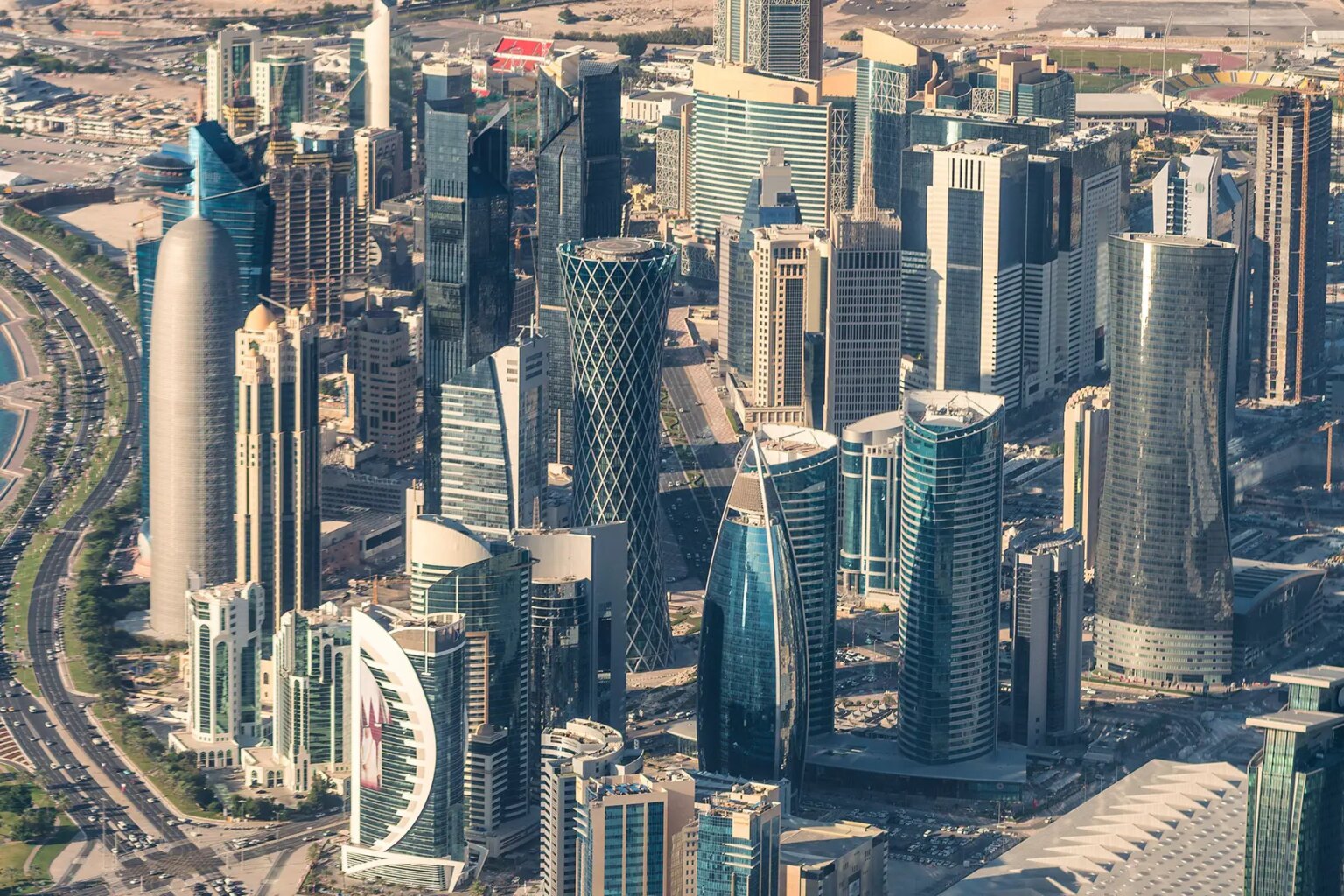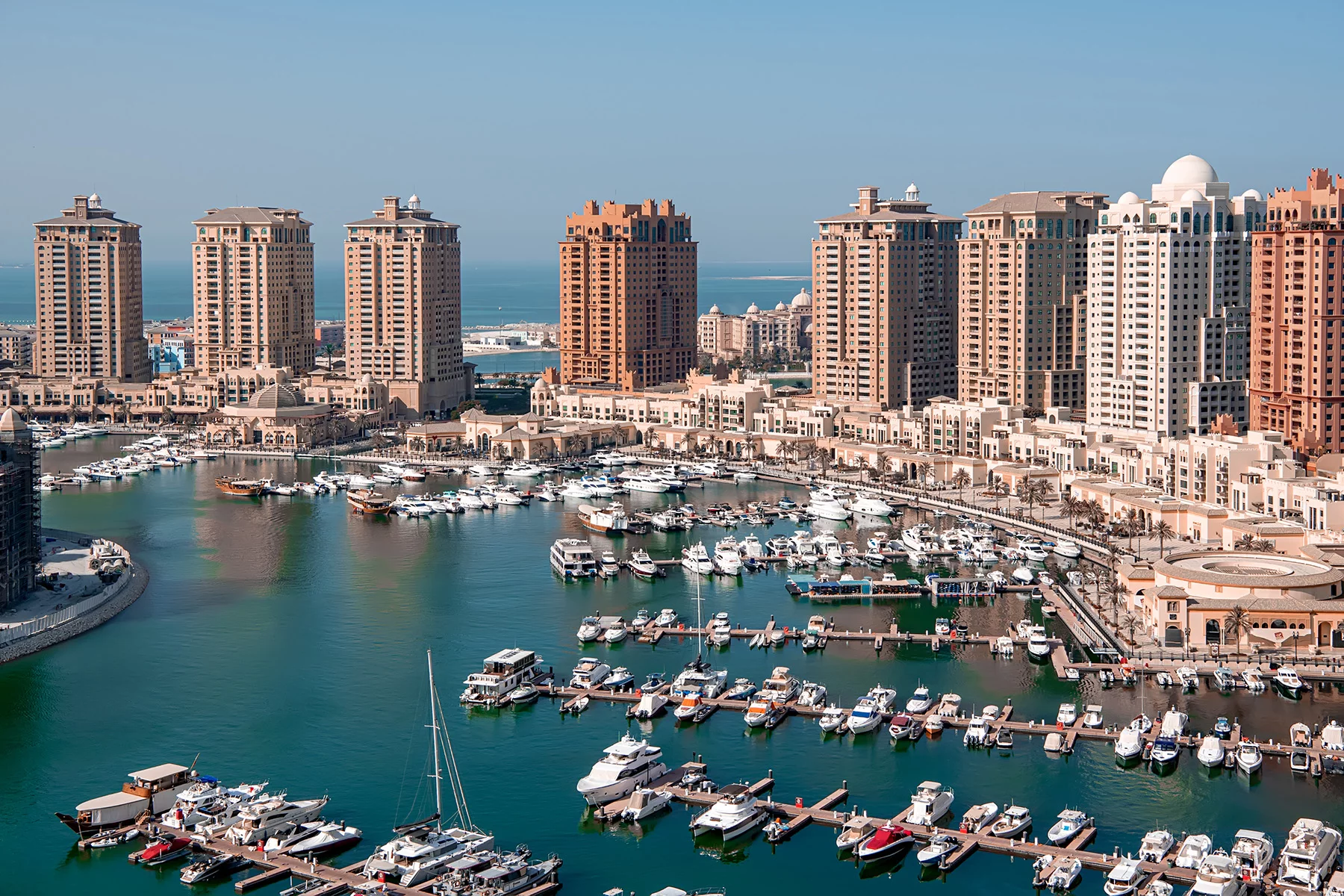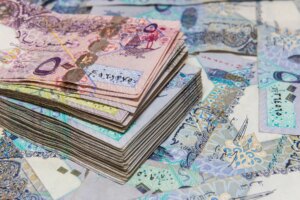The new law allows foreign investors to take 100% ownership in a Qatari company. Previously, foreign investors could take only a 49% share (with a local Qatari partner taking 51%). In addition to setting up fully-owned local businesses, foreign investors, and resident expats can trade on the Qatar Stock Exchange. Furthermore, they can invest in private pension plans, and access a wide range of other financial investments in the country. This helpful article to investing in Qatar covers the following topics:
- Investment in Qatar
- Savings account investments in Qatar
- Pensions investments in Qatar
- Property investments in Qatar
- Business investments in Qatar
- Investment funds in Qatar
- Investing in stocks and shares in Qatar
- Offshore investments in Qatar
- Tax on investments in Qatar
- How to invest wisely in Qatar
- Investment advice in Qatar
- Useful resources
Investment in Qatar
Resource-rich Qatar came relatively late to the foreign investment table. However, billions of dollars of overseas investments now flood into the country every year, helping propel economic growth. Although currently under a political and trade embargo – imposed by Saudi Arabia, the UAE, Bahrain, and Egypt in June 2017 – Qatar’s GDP is forecast to grow by 2.8% on average between 2018 and 2020. The country’s central bank says foreign capital inflows “have returned” and “banking liquidity has improved” since the embargo started.
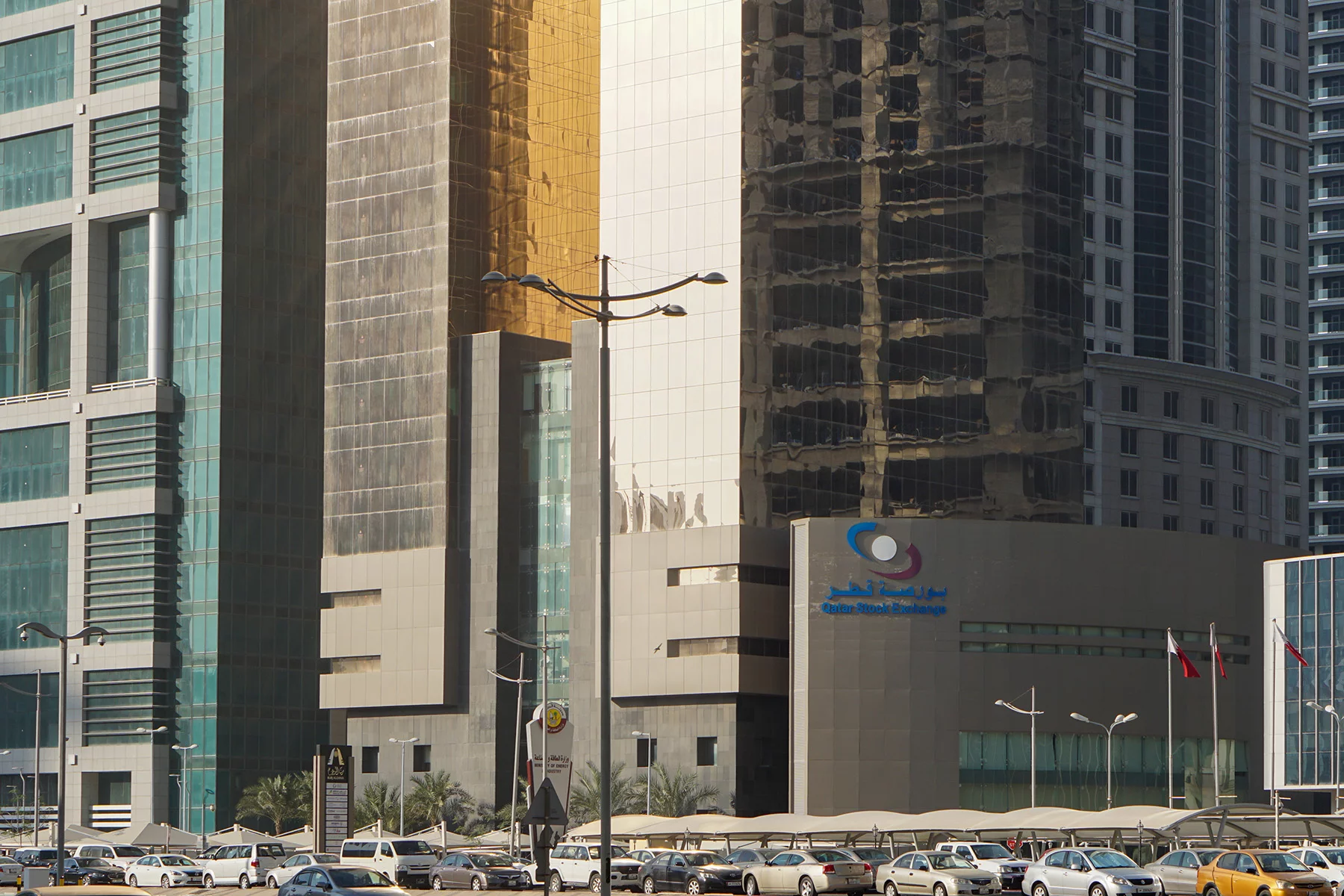
Foreign investments in Qatar, including foreign direct investment and portfolio investments, totaled QR722.6 billion at the end of the first quarter of 2019. This is up more than 6% on the previous year. The country ranked 42nd on the Global Foreign Direct Investment Country Attractiveness Index in 2020. Furthermore, the new foreign investment law, which came into effect in January 2019, makes Qatar even more attractive.
As a result of its stable economy and pro-investor regulatory environment, Qatar’s foreign investment credentials are strong and growing.
Savings account investments in Qatar
Expats in Qatar are served by a range of retail banks offering current, savings, and deposit accounts. These include the International Bank of Qatar, Commercial Bank of Qatar, Al Khalij Commercial Bank, Qatar Islamic Bank, Masraf Al Rayan, Mashreq, HSBC, Ahli Bank, Barwa Bank, and Doha Bank. Visit Yalla Compare to view account features, eligibility criteria, profit rates, bank charges, and account opening procedures.
Pensions investments in Qatar
Expats cannot claim Qatari state pensions. However, some employers in the country offer corporate pension schemes for expats. The type of plan varies, though, depending on whether the employer is a multinational or a Qatari company.
Many expats choose to invest in a private pension plan while they are in Qatar. Above all, the things to consider when looking into setting up a private pension plan include:
- when you aim to retire;
- how much you need to save to retire at that age;
- the type of retirement lifestyle you want;
- where you want to retire;
- whether you have major expenses on the horizon;
- how inheritance laws might affect retirement plans.
Property investments in Qatar
A combination of year-round sunshine, good food, miles of beaches, high living standards, and tax-free salaries make Doha (and Qatar in general) a desirable place. And, if you’re planning on being there for a few years, it might make sense to buy a place to live in or rent out.

It is a buyers’ market right now – Doha isn’t the boomtown it was. House prices, which were through the roof during the mid-decade peak, have tumbled 10% since June 2017. As a result, rents have fallen by a fifth in that time. And with new housing coming onto the market in 2020, prices could fall further.
However, as a buyer, there are reasons to be cheerful. The 2022 FIFA World Cup should create a welcome (though possibly brief) spike. Furthermore, the recent opening of the first phase of the new Doha Metro in 2019 could also support prices by boosting the economy. In addition, there is an expanding tourism industry to consider – think Airbnb for your investment property.
Where to buy property in Qatar
The number of property purchase transactions rose 20% year-on-year in the first quarter of 2019, too. Resident expats and foreign investors can buy freehold villas and apartments in designated areas. These include The Pearl Qatar (peer out of the plane window as you land at Doha airport and you might just catch a glimpse of the swanky development); West Bay Lagoon (known for its grand waterfront pads); Lusail City (where you’ll be literally on the doorstep of the 2022 FIFA World Cup final); and Al Khor (a peaceful spot 50km north of Doha). You won’t get much change out of $500,000 for an average three-bedroom apartment on The Pearl. However, prices are lower in Lusail and Al Khor. Meanwhile, beachfront villas at West Bay Lagoon run into the millions.
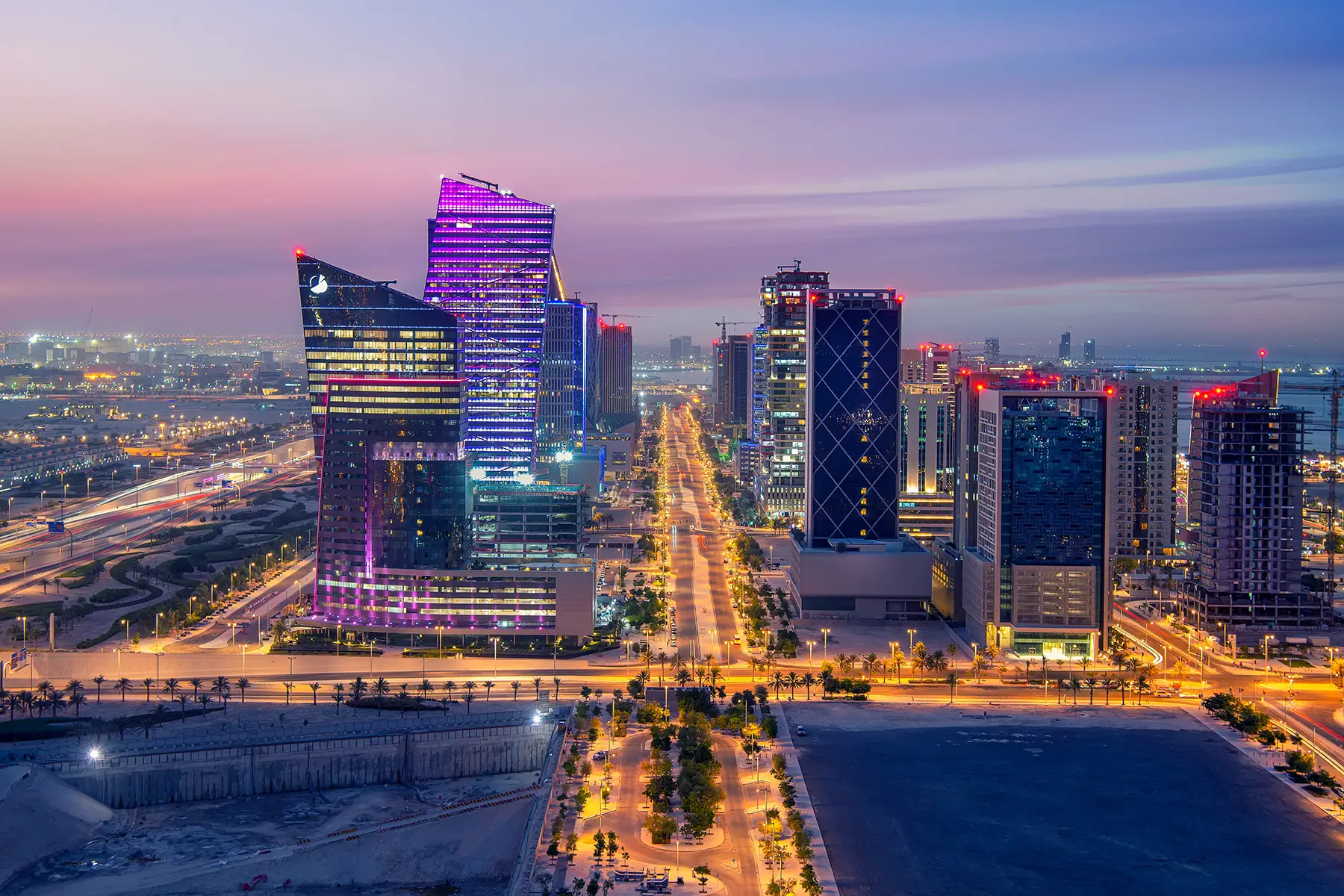
Property Finder is a great resource for information on these districts. The government recently opened up new areas for expats to buy freehold property; Doha Municipality can advise where.
Getting a mortgage in Qatar
As a result of increasing property investment opportunities, Qatar’s expat mortgage market is competitive. Currently, the banks which lend to expats include Qatar Islamic Bank, Mashreq, Commercial Bank of Qatar, Masraf Al Rayan and HSBC. Check out Yalla Compare for the best deals.
The formalities of investing in property in Qatar may be different from those many expats are used to. It is therefore advised to engage a reputable estate agent and lawyer to help navigate the process. They should assist, for example, with drafting a purchase agreement and registering at the Ministry of Justice’s Real Estate Registration Department; registration cost is 0.25% of the total property price. Once the Property Title is in hand, it will need to go to the ministry’s Lease Registration Office if the property is to be rented. It is important to bear in mind that documentation will be in Arabic.
Business investments in Qatar
Qatar’s new foreign investment law is a game-changer because it allows non-Qataris to assume 100% ownership of a business in any sector; except banking, insurance, commercial agency activities, security, and defense. Furthermore, the economy is being prised open for foreign investors, in line with Qatar National Vision 2030, the country’s long-term development plan.

While the new foreign investment law gives no specifics on incentives for foreign investors, it at least makes investing in Qatar easier. The Ministry of Industry and Commerce (MOIC) states that “investments may be undertaken after submitting a request to the competent department, which processes the application within 15 days.”
The MOIC website is a useful starting point for investors; however, some choose to hire a corporate services agent to liaise with the government departments. Tailored information for foreign investors is available on the Qatar Investment Portal, as well as general information on setting up a Qatari company. Types of Qatari company include:
- Limited Liability Company (LLC): a minimum of two shareholders. Minimum start-up capital QR200,000.
- Shareholding Company: capital divides into tradable shares of equal value.
For foreign companies looking to carry out work in Qatar, the law stipulates that the contract must be executed through a local branch office. In addition, the branch must have a commercial license before signing the contract. Qatari business culture also has its’ own peculiarities that may be difficult to navigate if you’re not local.
Investment funds in Qatar
According to Investopedia, an investment fund is defined as “a supply of capital belonging to numerous investors used to collectively purchase securities; while each investor retains ownership and control of his own shares.” An investment fund provides a broader selection of investment opportunities, greater management expertise, and lower investment fees than investors might be able to obtain on their own, it adds. Types of investment funds available to foreign investors and expats in Qatar include mutual funds and equity funds.

Qatar National Bank’s (QNB) Al Watani equity fund is available to resident expats and non-resident foreign nationals. The minimum investment is QR20,000. Commercial Bank of Qatar offers a range of mutual funds from various asset management companies/fund houses. Investment levels start at QR10,000. Doha Bank offers a systematic investment plan; meanwhile, HSBC Qatar offers emerging market equities, developed market equities, fixed income, and alternatives to expats resident in Qatar who already have an HSBC bank account.
Investing in stocks and shares in Qatar
Qatar Stock Exchange (QSE) is the world’s 33rd largest by market capitalization; bigger than its regional rival Dubai, which is 42nd. Expats and foreign nationals can invest on the QSE, but only via a broker. The broker acts as an intermediary for all trading and brokerage transactions. There are currently 11 brokerages licensed to do this in Qatar. In addition, foreign investors must be registered at Qatar Central Securities Depository before trading on the exchange. Once registered, you will get an Investor Card (with National Identification Number), after which shares can be bought and sold. Non-Qatari investors can own up to 49% of the share capital of a QSE-listed company.
Offshore investments in Qatar
Unlike some other international jurisdictions, Qatar does not offer any kind of offshore investment vehicle to investors.
Tax on investments in Qatar
There is no personal income tax in Qatar. In addition, only business income is taxable; and at the rate of 10%. Furthermore, there is no capital gains tax on the disposal of real estate and securities by an individual. Leasing property is considered a business activity and rental income is taxed at 10%. There are no property taxes. Qatar is expected to introduce a 5% value-added tax (VAT) in early 2020. Deloitte provides a really good overview of the tax system in Qatar.
How to invest wisely in Qatar
Investing in Qatar may be different – in terms of prospects, procedures, and profits – to what you are used to. However, the same basic principles apply. In conclusion, the factors to consider when investing in Qatar include:
- What investment opportunities are available as a foreigner or resident expat;
- How stable the regulations are around foreign investment in Qatar;
- What levels of protection foreign investors receive in Qatar;
- If there are any incentives to attract foreign investment (e.g., loans, subsidies);
- How the regional geopolitical situation could affect Qatar’s economy;
- If the country is politically stable;
- If the currency is stable;
- How developed the banking and financial system is
The bottom line is – do your homework, and engage with people on the ground who can give accurate, impartial advice.
Investment advice in Qatar
The first port of call for most foreign investors is the Ministry of Commerce and Industry, which offers advice, services, and the Qatar Investment Portal. Above all, it is advisable to hire a local lawyer to guide you through the processes of investing in Qatar.
